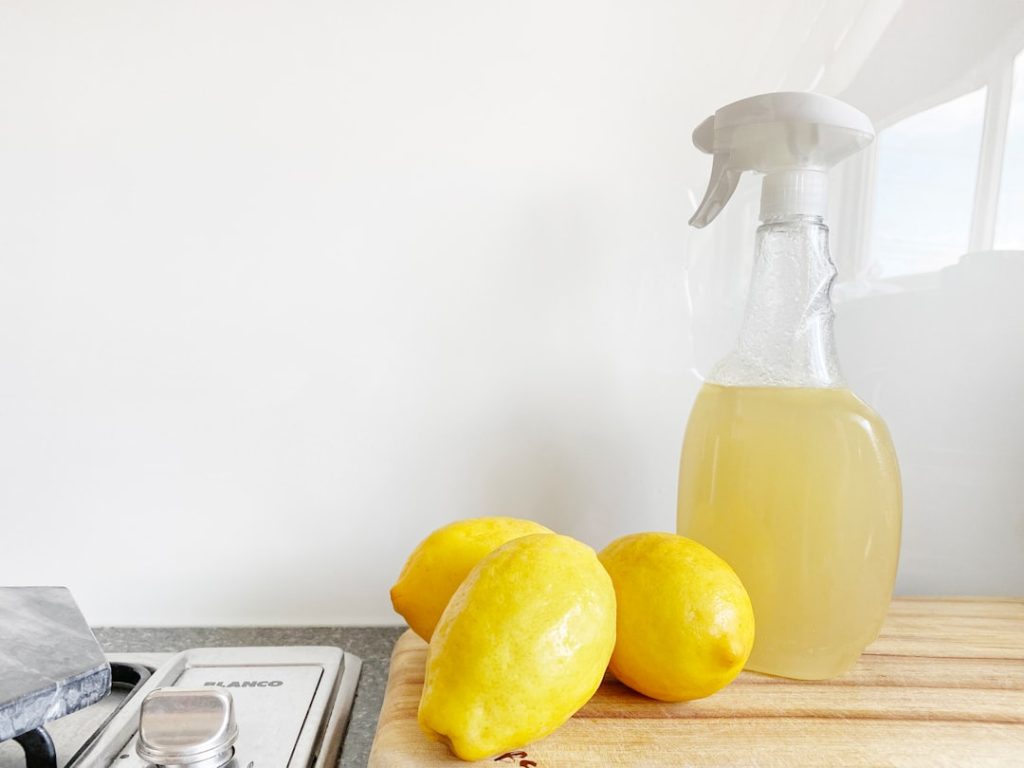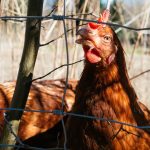Maintaining a clean chicken run is crucial for the health and welfare of poultry. A well-maintained environment reduces the risk of disease transmission, pest infestations, and unpleasant odors. Proper sanitation promotes better egg production and overall chicken health.
Regular cleaning prevents the accumulation of harmful bacteria and parasites that can threaten flock health. A hygienic chicken run also positively impacts egg quality. Chickens living in sanitary conditions are less likely to encounter harmful bacteria and contaminants that may affect their eggs.
This ensures safer eggs for human consumption. Additionally, a clean environment facilitates easier observation of the flock, allowing for prompt detection of health issues or injuries. The importance of a clean chicken run extends beyond the immediate benefits to the birds.
It contributes to the overall quality of poultry products, supports biosecurity measures, and promotes responsible animal husbandry practices. Regular maintenance of the chicken run is an essential aspect of successful poultry management.
Table of Contents
- 1 Regular Maintenance and Cleaning Routine
- 2 Proper Waste Management
- 3 Effective Pest Control
- 4 Choosing the Right Bedding Material
- 5 Providing Adequate Ventilation
- 6 Tips for Keeping the Chicken Run Smell-Free
- 7 FAQs
- 7.1 What are some tips for keeping a chicken run clean and smelly free?
- 7.2 How often should chicken droppings be removed from the run?
- 7.3 What type of bedding is best for keeping a chicken run clean and odor-free?
- 7.4 How can proper ventilation help keep a chicken run clean and odor-free?
- 7.5 What are some common mistakes to avoid when trying to keep a chicken run clean?
- 7.6 Are there any natural remedies for controlling odors in a chicken run?
Key Takeaways
- A clean chicken run is important for the health and well-being of your chickens
- Regular maintenance and cleaning routine is essential to prevent the buildup of waste and pests
- Proper waste management is crucial to keep the chicken run clean and odor-free
- Effective pest control is necessary to protect your chickens from harmful insects and rodents
- Choosing the right bedding material can help absorb moisture and reduce odors in the chicken run
- Providing adequate ventilation is key to preventing the buildup of ammonia and other odors in the chicken run
- Tips for keeping the chicken run smell-free include regular cleaning, proper waste management, and using natural odor control methods
Regular Maintenance and Cleaning Routine
Daily, Weekly, and Monthly Cleaning Tasks
To keep your chicken run clean and sanitary, it’s essential to establish a regular maintenance and cleaning routine. This routine should include daily, weekly, and monthly tasks to ensure the chicken run remains clean and healthy for your flock. Daily tasks may include removing soiled bedding, cleaning water and feed containers, and checking for signs of pest infestations. Weekly tasks may involve raking and removing accumulated debris, scrubbing down surfaces, and inspecting the overall condition of the chicken run. Monthly tasks may include a more thorough cleaning of the entire chicken run, such as pressure washing surfaces and disinfecting areas where bacteria and parasites may thrive.
Practicing Good Hygiene
In addition to regular cleaning, practicing good hygiene is crucial when working in the chicken run. This includes wearing gloves and appropriate footwear to prevent the spread of bacteria and parasites. It’s also important to wash your hands thoroughly after handling chickens or working in the chicken run to prevent the spread of potential contaminants.
Benefits of a Clean and Healthy Chicken Run
By establishing a regular maintenance and cleaning routine and practicing good hygiene, you can help ensure that your chicken run remains clean and healthy for your flock. A clean and healthy chicken run reduces the risk of disease and parasites, promotes a healthy environment for your chickens, and ensures a safe and enjoyable experience for you and your family.
Proper Waste Management

Proper waste management is crucial for maintaining a clean and healthy chicken run. Chicken waste, such as droppings and soiled bedding, can quickly accumulate and create an unsanitary environment for your flock. To effectively manage waste in the chicken run, it is important to regularly remove soiled bedding and droppings.
This can help to prevent the buildup of harmful bacteria and parasites that can pose a threat to your flock’s health. Additionally, proper waste management can also help to reduce unpleasant odors in the chicken run, creating a more pleasant environment for both you and your chickens. In addition to removing soiled bedding and droppings, it is also important to properly dispose of waste from the chicken run.
Chicken waste can be composted to create nutrient-rich fertilizer for your garden or disposed of in a responsible manner. By properly managing waste in the chicken run, you can help to maintain a clean and healthy environment for your flock while also reducing your environmental impact.
Effective Pest Control
Pest control is an important aspect of maintaining a clean chicken run. Pests such as flies, mites, and rodents can pose a threat to the health of your flock and create an unsanitary environment in the chicken run. To effectively control pests in the chicken run, it is important to regularly inspect for signs of infestations and take proactive measures to prevent pests from taking hold.
This may include using natural deterrents such as diatomaceous earth or herbs, as well as implementing physical barriers to prevent pests from entering the chicken run. In addition to preventative measures, it is also important to address any pest infestations promptly. This may involve using natural or chemical treatments to eliminate pests from the chicken run.
By effectively controlling pests in the chicken run, you can help to maintain a clean and healthy environment for your flock while also preventing potential health issues associated with pest infestations.
Choosing the Right Bedding Material
Choosing the right bedding material is essential for maintaining a clean and healthy chicken run. The bedding material not only provides a comfortable surface for your chickens to walk on but also helps to absorb moisture and control odors in the chicken run. There are several different types of bedding materials available, including straw, wood shavings, and shredded paper.
When choosing a bedding material for your chicken run, it is important to consider factors such as absorbency, odor control, and ease of cleaning. Straw is a popular choice for bedding material as it is absorbent and helps to control odors in the chicken run. However, straw can be difficult to clean and may need to be replaced frequently.
Wood shavings are another popular choice for bedding material as they are absorbent and easy to clean. However, some types of wood shavings may contain oils or chemicals that can be harmful to chickens, so it is important to choose a safe and natural option. Shredded paper is also a viable option for bedding material as it is absorbent and easy to clean.
When choosing a bedding material for your chicken run, it is important to consider the specific needs of your flock and select a material that will provide a comfortable and sanitary environment for your chickens.
Providing Adequate Ventilation

Consequences of Poor Ventilation
Without adequate ventilation, moisture can accumulate in the chicken run, creating an environment that is conducive to the growth of harmful bacteria and parasites. Moreover, poor ventilation can lead to unpleasant odors and an uncomfortable environment for your chickens.
Ensuring Adequate Ventilation
To provide adequate ventilation in the chicken run, it is essential to ensure that there are sufficient openings for air to flow through. This may include windows, vents, or open doors that allow for air circulation throughout the chicken run.
Optimizing Ventilation through Strategic Placement
It is also important to consider the placement of the chicken run in relation to prevailing winds to maximize airflow. By providing adequate ventilation in the chicken run, you can help to maintain a clean and healthy environment for your flock while also preventing the buildup of harmful bacteria and odors.
Tips for Keeping the Chicken Run Smell-Free
Keeping the chicken run smell-free is essential for creating a pleasant environment for both you and your flock. There are several tips that can help to minimize odors in the chicken run and maintain a clean and healthy environment for your chickens. One tip is to regularly remove soiled bedding and droppings from the chicken run to prevent the buildup of odors.
This can help to keep the chicken run smelling fresh while also reducing the risk of harmful bacteria and parasites. Another tip for keeping the chicken run smell-free is to use natural odor control methods such as sprinkling baking soda or diatomaceous earth in the chicken run. These natural substances can help to absorb odors and create a more pleasant environment for your flock.
Additionally, providing adequate ventilation in the chicken run can help to remove excess moisture and odors while also providing fresh air for your chickens. In conclusion, maintaining a clean chicken run is essential for the health and well-being of your flock. By establishing a regular maintenance and cleaning routine, practicing proper waste management, implementing effective pest control measures, choosing the right bedding material, providing adequate ventilation, and following tips for keeping the chicken run smell-free, you can create a clean and healthy environment for your chickens while also ensuring the production of high-quality eggs.
If you’re looking for tips on how to keep your chicken run clean and smell-free, you might also be interested in learning about how to care for goslings. This article provides valuable information on raising and caring for young geese, which can also help you maintain a clean and healthy environment for your poultry.
FAQs
What are some tips for keeping a chicken run clean and smelly free?
Some tips for keeping a chicken run clean and smelly free include regularly removing droppings, providing proper ventilation, using absorbent bedding, and regularly cleaning and maintaining feeders and waterers.
How often should chicken droppings be removed from the run?
Chicken droppings should be removed from the run at least once a week to prevent buildup and odors.
What type of bedding is best for keeping a chicken run clean and odor-free?
Pine shavings or straw are good options for bedding in a chicken run as they are absorbent and help control odors.
How can proper ventilation help keep a chicken run clean and odor-free?
Proper ventilation helps to reduce moisture and ammonia buildup in the chicken run, which can contribute to odors and unsanitary conditions.
What are some common mistakes to avoid when trying to keep a chicken run clean?
Common mistakes to avoid when trying to keep a chicken run clean include using too much bedding, allowing water to pool in the run, and neglecting to regularly clean feeders and waterers.
Are there any natural remedies for controlling odors in a chicken run?
Some natural remedies for controlling odors in a chicken run include adding herbs such as lavender or mint to the bedding, or using natural odor-absorbing products like diatomaceous earth.
Meet Walter, the feathered-friend fanatic of Florida! Nestled in the sunshine state, Walter struts through life with his feathered companions, clucking his way to happiness. With a coop that’s fancier than a five-star hotel, he’s the Don Juan of the chicken world. When he’s not teaching his hens to do the cha-cha, you’ll find him in a heated debate with his prized rooster, Sir Clucks-a-Lot. Walter’s poultry passion is no yolk; he’s the sunny-side-up guy you never knew you needed in your flock of friends!







